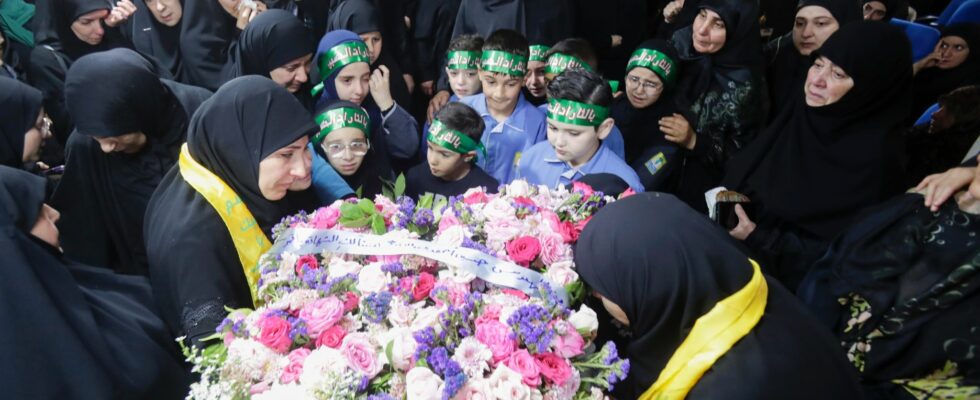The new wave of explosions of Hezbollah transmission devices on Wednesday, September 18, left 20 dead and more than 450 injured across Lebanon. This series of attacks, attributed to the Mossad, exacerbates fears of an all-out war with Israel: the United States has warned against “any risk of escalation”, while several European representatives are due to meet in Paris on Thursday, September 19, to discuss the situation in the Middle East. For his part, the head of Lebanese Hezbollah, Hassan Nasrallah, is due to give a highly anticipated speech in the late afternoon.
Key information to remember
⇒ The death toll from new walkie-talkie explosions rose to 20 on Wednesday evening
⇒ Hezbollah leader Hassan Nasrallah is scheduled to speak at 5 p.m. this Thursday
⇒ An emergency meeting planned in Paris with several European representatives
20 dead and 450 injured in walkie-talkie explosion
On Wednesday, September 18, the Lebanese Ministry of Health reported that “the wave of enemy explosions targeting walkie-talkies” had “killed 20 people” and injured “more than 450.” This new wave comes the day after a major attack that had already killed twelve people and injured between 2,750 and 2,800, in the explosion of beepers used by Hezbollah and some administrations to communicate.
In Beirut, walkie-talkies exploded simultaneously Wednesday in the southern suburbs, as the funeral of four Hezbollah members killed the day before in the attack was taking place, according to a source close to the Lebanese movement and rescue workers. The explosions caused panic during the funeral, with many people rushing to take shelter.
Hassan Nasrallah, the head of the Shiite organization, who was not injured in this sequence according to a source close to the movement, is due to speak on Thursday at 5 p.m. For his part, the head of Lebanese diplomacy, Abdallah Bou Habib, estimated that Tuesday’s attack could be the harbinger of a wider war in the Middle East.
Washington warns against “any escalation”
The UN Security Council will meet urgently on Friday to discuss the situation in Lebanon, deploring an “extremely worrying escalation” while Washington has warned against any “escalation”.
In this explosive context, US Secretary of State Antony Blinken, visiting Cairo, called on Israel and Hamas to show “political will” to reach a ceasefire agreement, after months of fruitless negotiations. The Palestinian movement, for its part, accused Israel of being responsible for the new wave of explosions in Lebanon, citing a “threat” to regional stability.
Meeting in Paris to discuss the situation in the Middle East
The head of European diplomacy, Josep Borrell, condemned the “attacks” on pagers on Wednesday, saying he was “extremely concerned” by the situation. For their part, representatives of American, French, German, Italian and British diplomacy will meet in Paris on Thursday to take stock of the state of negotiations for a truce in Gaza and the situation in Lebanon, according to diplomatic sources.
Israel had announced its decision to extend the objectives of the war to the Israeli-Lebanese border, in order to allow the return of displaced people in northern Israel. The main objectives displayed so far were the destruction of Hamas, which has been in power in Gaza since 2007, and the return of hostages held in the Palestinian territory.
Walkie-talkies had not been produced for “about ten years”
Japanese manufacturer Icom said Thursday it stopped producing the walkie-talkies suspected of exploding “about a decade ago,” responding to reports from the New York Times and Israeli media, which mentioned one of its models. The IC-V82 radio “exported, including to the Middle East until 2014 […] was discontinued about 10 years ago, and since then has not been shipped by our company,” Icom said in a statement.
“Production of the batteries needed to operate the main unit has also been halted, and the holographic seal to distinguish counterfeit products has not been identified, so it is not possible to confirm whether the product was shipped from our company,” the company said. “In addition, all of our radios are manufactured in the same factory, and we do not manufacture them overseas,” Icom said. It added that products for overseas markets are sold exclusively through its authorized distributors.
The day before, a source close to Hezbollah had told AFP that “the beepers that exploded came from a shipment recently imported by the organization of 1,000 devices.” According to a preliminary investigation conducted by the Lebanese authorities, “the devices contained explosive materials placed next to the battery.” Charles Lister, an expert at the Middle East Institute, estimated on X that “the Mossad infiltrated the supply chain” of Hezbollah.
